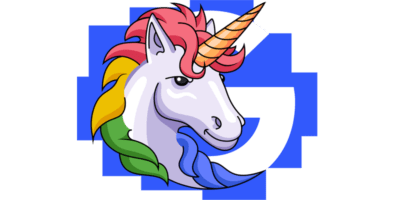Getting these right can lead to higher rankings, increased visibility, and more organic traffic to your website—so they’re worth doing.
Let’s take a look at the top on-page SEO factors that can help you rise through the ranks.
Making your content relevant is more important than ever. You need to craft your content so it gives your visitors the answers and information they are searching for.
For example, you can tell by looking at the top results for “air fryer salmon” that searchers want a recipe. To stand the best chance of ranking for this keyword, that’s what you should give them. If you write about the pros and cons of air-frying salmon, you’ll struggle to rank because it’s not what searchers want.
Learn more: Search Intent in SEO: What It Is & How to Optimize for It
Learn more: Content Refreshing: A Step-by-Step Strategy (Based on Updating 50+ Posts)
Title tags are an HTML element that specifies the title of the webpage. A good title tag will help visitors (and Google) understand what the page is about.
Title tags are shown in search engines like Google alongside the webpage’s meta description. They are usually one of the first things visitors see when scanning through the search results.
Learn more: How to Craft the Perfect SEO Title Tag (Our 4-Step Process)
URL stands for uniform resource locator—it sounds complicated, but it’s the address of a website. Most web browsers will display the URL in the address bar when you visit a website.
When it comes to SEO, there are small optimizations you can make to your URLs to make them more readable by search engines.
Learn more: How to Create SEO-Friendly URLs (Step-by-Step)
A meta description is an HTML attribute that describes what a webpage is about. They are shown by search engines like Google in their search results alongside the title tag to provide context about the webpage.
Learn more: How to Write the Perfect Meta Description
An internal link is a hyperlink that links to an internal destination within the same website. They’re helpful for SEO as they can help signpost important content on your website to search engines like Google.
Learn more: Internal Links for SEO: An Actionable Guide
Schema markup helps search engines like Google understand information on a page in more detail.
Google uses schema to show rich results—visually enhanced search results. For certain niches, like recipes, you need to use schema markup, as visitors expect to see visual results for this type of content.
Learn more: Schema Markup: What It Is & How to Implement It
Optimizing images with SEO in mind is important. Alt text, captions, choosing the best file type, and sizing your images appropriately are just a few of the things that you need to take into account when adding images to your website.
Learn more: Image SEO: 12 Actionable Tips (for More Organic Traffic)
9. E-E-A-T
[/post_nav_link]E-E-A-T (Experience, Expertise, Authoritativeness, and Trustworthiness) is a concept used by human quality raters to evaluate Google’s search ranking systems. It is not a direct ranking factor, but Google likes content from trusted sources that have first hand experience about the topic they are writing about.
Learn more: E-E-A-T Is the New E-A-T. What the New “E” Means for SEO



